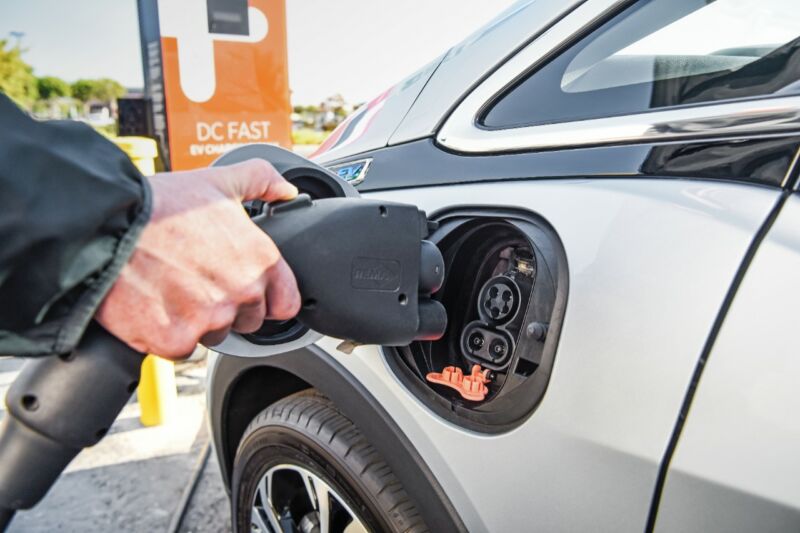
In November 2020, General Motors issued a recall of the Chevrolet Bolt EV due to a potential fire risk. Unfortunately for Bolt EV owners, that fix—a software patch—did not work, and now their cars are subject to a second recall. General Motors will replace battery modules in the affected cars, which span model years 2017-2019.
The problem started making headlines in October 2020, when the National Highway Traffic Safety Administration began an investigation into the electric hatchback following a number of reports of vehicle fires. GM tried to fix the problem with software, at first temporarily limiting the Bolt EVs’ batteries from charging past 90 percent.
A more permanent fix was made available in May 2021. During the course of GM’s investigation together with LG Chem (which makes the lithium-ion battery cells), the companies discovered in some modules “a rare manufacturing defect” that could cause a short and thereby start a battery fire. The solution was to let diagnostic software monitor for this defect and alert the owner if detected.
However, on July 14, the NHTSA revealed that it knew of two more Bolt EV fires, both of which had received GM’s fix. On Friday, GM reacted, issuing a second recall—which it says is actually for a second defect. In a statement, the automaker said that “experts from GM and LG have identified the simultaneous presence of two rare manufacturing defects in the same battery cell as the root cause of battery fires in certain Chevrolet Bolt EVs.”
GM will contact owners of MY2017-2019 Bolt EVs when the replacement battery modules are ready to be installed. Until then, life with an affected car is going to be a lot less convenient than it used to be.
GM says that owners should once more use Hilltop Reserve mode (MY2017-2018) or Target Charge Level (MY2019) to prevent the battery from charging past 90 percent. Additionally, GM is asking owners to recharge their vehicles after each trip, although they are also asked not to leave their Bolt EVs charging overnight, and the cars should be unplugged immediately after charging and be parked outside. Finally, owners should try to leave at least 70 miles of range in the battery.
Listing image by Chevrolet
https://arstechnica.com/?p=1782521

